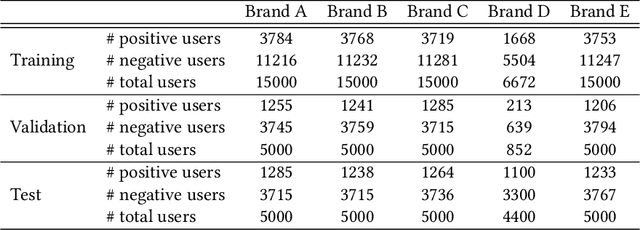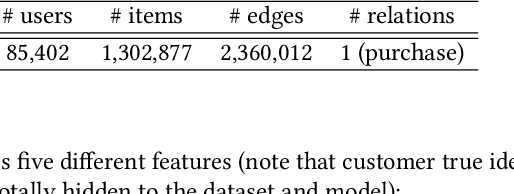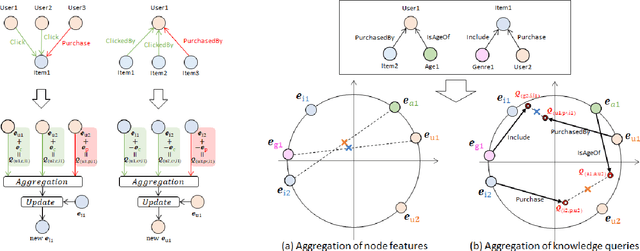KQGC: Knowledge Graph Embedding with Smoothing Effects of Graph Convolutions for Recommendation
Paper and Code
May 23, 2022



Leveraging graphs on recommender systems has gained popularity with the development of graph representation learning (GRL). In particular, knowledge graph embedding (KGE) and graph neural networks (GNNs) are representative GRL approaches, which have achieved the state-of-the-art performance on several recommendation tasks. Furthermore, combination of KGE and GNNs (KG-GNNs) has been explored and found effective in many academic literatures. One of the main characteristics of GNNs is their ability to retain structural properties among neighbors in the resulting dense representation, which is usually coined as smoothing. The smoothing is specially desired in the presence of homophilic graphs, such as the ones we find on recommender systems. In this paper, we propose a new model for recommender systems named Knowledge Query-based Graph Convolution (KQGC). In contrast to exisiting KG-GNNs, KQGC focuses on the smoothing, and leverages a simple linear graph convolution for smoothing KGE. A pre-trained KGE is fed into KQGC, and it is smoothed by aggregating neighbor knowledge queries, which allow entity-embeddings to be aligned on appropriate vector points for smoothing KGE effectively. We apply the proposed KQGC to a recommendation task that aims prospective users for specific products. Extensive experiments on a real E-commerce dataset demonstrate the effectiveness of KQGC.
 Add to Chrome
Add to Chrome Add to Firefox
Add to Firefox Add to Edge
Add to Edge